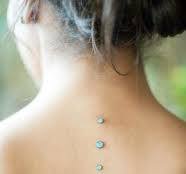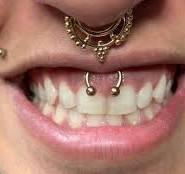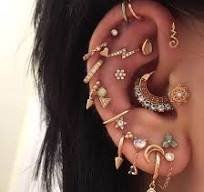In recent years, body piercing has been popular among Nigeria’s youth, particularly in urban centres like Lagos and Abuja. From tongue piercings to nose rings and navel piercings, young people use their bodies as a canvas for self-expression. However, this trend has sparked differing opinions from society, health professionals, and parents. In this report, Gom Mirian spoke with young Nigerians who have undergone body piercings, experts, to understand the implications of this growing phenomenon.

Personal Experiences and Perceptions
For 19-year-old Chidinma (not her real name), an Abuja-based student, getting a tongue piercing was all about expressing her individuality. “I’ve always been interested in fashion, and piercing felt like a way to stand out,” she shares. “It’s more than just looking cool; it’s about embracing my uniqueness. While I’ve received compliments, some people view it as rebellious, but I’m okay with that.”
Another Abuja resident, Alice, a 21-year-old, reflects on her recent decision to pierce her nose. “I got the nose ring because it boosts my confidence. It’s not about following a trend for me—it’s part of who I am,” she explains. “But people do stare, especially older ones. Some have told me it’s inappropriate for a ‘respectable’ person.”
Despite feeling empowered by their piercings, both Chidinma and Alice acknowledge the judgment they sometimes face from others.
Parents Perceptive
When asked whether she would allow her daughter to get a body piercing, Mrs. Nkechi, a mother of two, expressed caution. “I’m not completely opposed to piercings, but I would never allow my daughter to pierce her tongue or any part of her body that could be harmful.
She continued, “Nose and ear piercings are fine, but I think some piercings are just too extreme for young girls,” she says. “It’s not just about the health risks; it’s also about the image it projects in society.”
In contrast, actor Bolanle Ninalowo shared how he supported his daughter Aliyah’s decision to get her body pierced.
In a recent interview with VJ Adams, Ninalowo explained that while he initially turned down her request for a tongue piercing, he later agreed to support her navel piercing. “I wanted to strengthen our bond, so I took her to the studio and paid for the procedure,” he recalls. “It’s about understanding her choices and being there for her.”
Health Implications

Dr. Idaih Eziashi, a health expert, warns that body piercings can lead to health complications if not done properly. “Infections, allergic reactions, and nerve damage are common risks,” Dr. Eziashi explains in an interview with Africa Health Report, AHR. “If the piercing is not sanitised or performed in an unclean environment, infections can occur, leading to issues like swelling, pus, and, in extreme cases, blood poisoning.” he stresses the importance of having piercings done in a professional, clean studio and taking proper care during the healing process.
“Tongue piercings are particularly risky,” Dr. Eziashi continues. “They can damage teeth or gums, and there’s also a danger of choking or swallowing the piercing.”
Despite these risks, many young Nigerians are willing to take the chance to stay on trend or assert their style.
Psychological and Social Dynamics
Dr. Ifeanyi, a sociologist, explains that body piercings often reflect personal identity and a desire to belong to a particular social group.
“Piercings have always been a form of self-expression or a symbol of rebellion, especially in youth cultures.”
In Nigerian cities, many young people see piercings as a way to assert their individuality while aligning with global trends,” he says. “It’s also a way of showing membership in a youth subculture that values freedom of expression.”
However, Dr. Ifeanyi notes that while piercings can represent positive rebellion, they sometimes clash with Nigeria’s traditional values. “In a society where respect for elders and cultural norms is paramount, body piercings are often seen as challenging the status quo,” he says.
Body piercing is quickly becoming a widespread trend among young Nigerians, providing a unique way to express personal style and individuality. However, the practice isn’t without its challenges—societal judgment, health risks, and conflicting cultural views all play a role in shaping public perception. Whether viewed as an act of rebellion or self-empowerment, body piercings continue to be a topic of debate, reflecting the evolving conversations about youth culture and identity in Nigeria.



